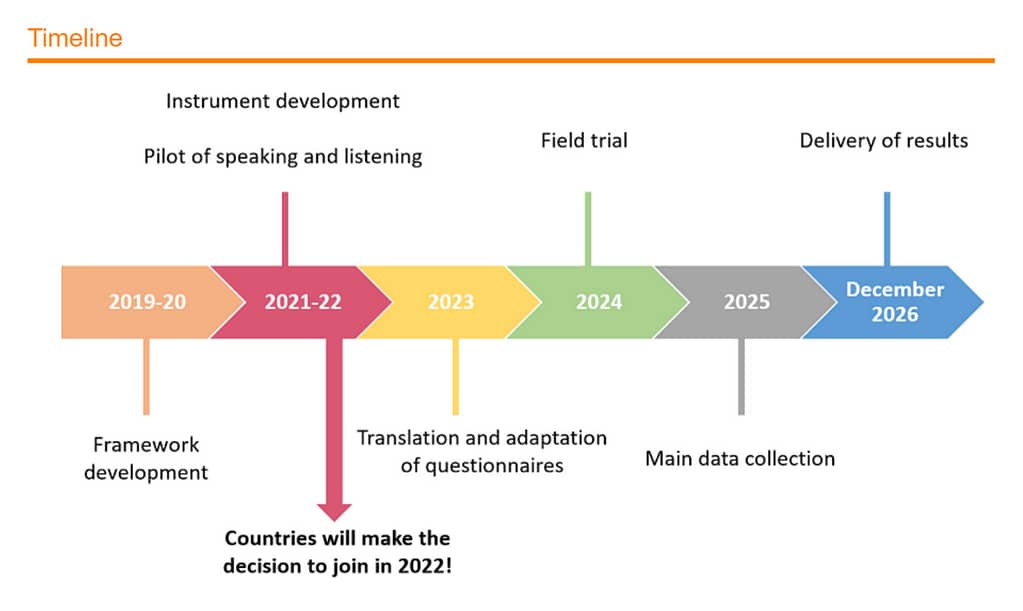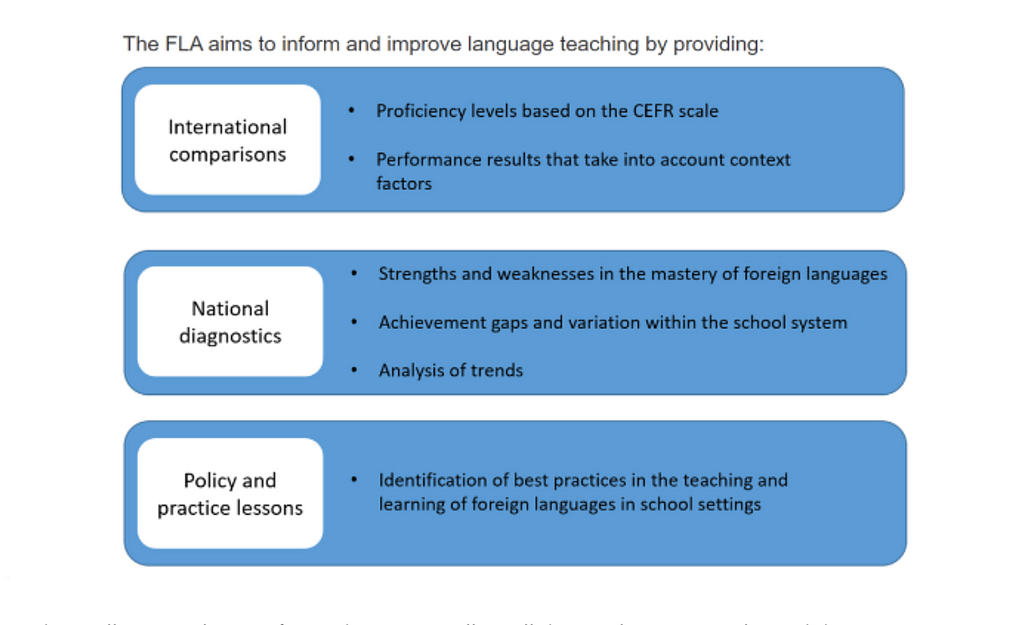The new PISA Foreign Language Assessment – A summary

Contributor Malcolm Harding
This is the first article in a series discussing the effect of the Common European Framework of Reference for Languages (CEFR) and the new Foreign Language Assessment (FLA, a new ESL test) that is being included in the Programme for International Student Assessment (PISA) starting from 2025.
The PISA is a worldwide study conducted every three years; it currently focuses on 15-year-old students’ abilities in mathematics, science and reading (in the students’ native language). However, in 2025 the Organisation for Economic Co-operation and Development (OECD) will be introducing a new Foreign Language Assessment to the PISA.
Initially, this FLA will be in English and will be composed of three key skill assessments: reading, listening, and speaking. It aims to inform and improve language teaching by providing international comparisons, national diagnostics, as well as policy and practice lessons.
The FLA test is being developed by Cambridge Assessment English and will follow the CEFR. In 2022, countries will decide if they wish to take part in the English tests with ‘Field Trials’. The tests currently under development will cover the CEFR levels A1-C1.

The overall aim of this new FLA is to provide a system through which to compare language learning throughout the world. This is the mission statement provided by Hanan Khalifa, Director of Education Transformation & Impact from Cambridge Assessment English. According to Dr. Khalifa ‘it is important to provide a properly systematic approach to language education in schools which can help to shape education policies at a national and regional level.’
How is it relevant for Japan?
Traditionally, Japan has performed exceptionally well during the PISA results and demonstrate extremely high levels of attainment in Science, Mathematics and Reading. The new FLA is the perfect opportunity for Japan to demonstrate the language skills of its students and to show why Japan is such an important nation internationally. The intercultural understanding, economic and cognitive benefits of language learning are vital to the presentation of all nations on the global scale, these new assessments will allow nations to present themselves as global leaders in the future. Japan has many English Language professionals and is well placed to become recognised as a paragon of education by utilising their knowledge to inform future educational policy.
To aid in the creation and expansion of educational policy, PISA will be distributing questionnaires. For the initial testing period, questionnaires will focus on the use of English in Information Technology classes and on “use of the target language for instruction in other subjects.” This allows for a prime opportunity to demonstrate the ability of English Language professionals in Japan and to work as an example to other nations for how to implement new systems on a national scale.



